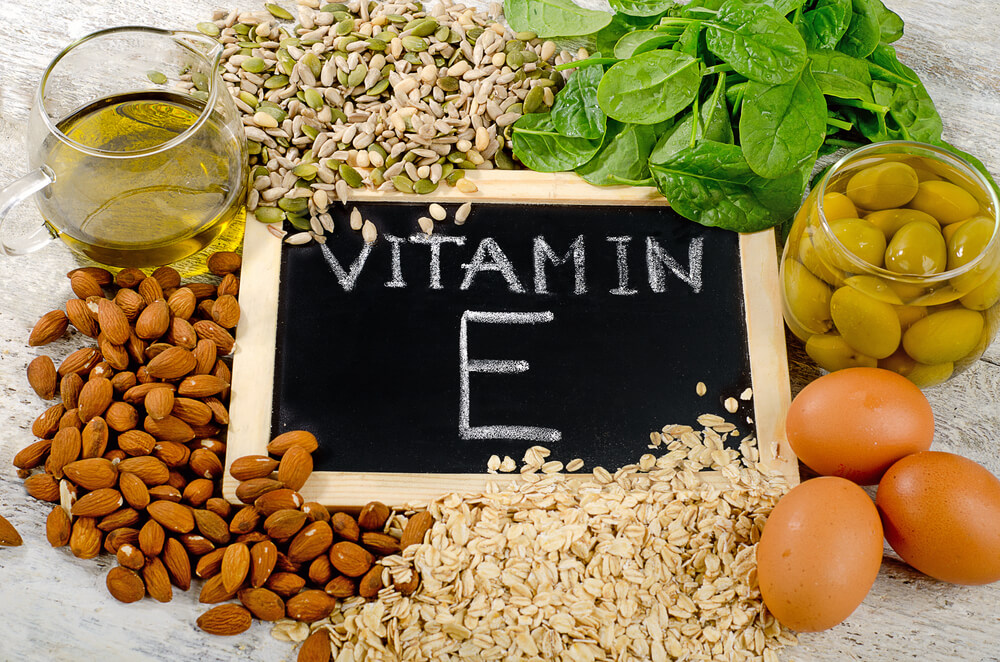Do you believe you have Vitamin E deficiency? Learn about the telling signs and how can you fix the issue with these simple steps.
Eating properly and being conscious about your health is very important but, even by taking the necessary steps to improve our wellbeing we may overlook things. Suffering from a vitamin E deficiency, for example, is rare but it can happen.
Vitamin E is a powerful, fat-soluble vitamin that creates a protective barrier for cell membranes against damaged caused by free-radicals and cholesterol. It is complex in nature, and it is that same complexity that helps maintain our immune system strong.
While suffering from vitamin E deficiency is not that common, it could be a sign of several underlying diseases that should be addresses promptly and appropriately.
In order to understand how intricate the situation may be, let’s take a look at the vitamin E deficiency symptoms you may experience if you suffer from this ailment:
- Mild hemolytic anemia
- Difficulty walking
- Difficulty in the coordination of movement
- Visual disturbances and/or irregularities
- General unwellness or “feeling ill” without a proper explanation
- Impaired immune response or being sick for longer periods of time
- Loss of muscle mass and the feeling of weakness
- Greasy stools
- Chronic diarrhea
- Skin problems
- Hair Loss
- Increased risk of contracting infectious diseases
- Increased risk of developing tumors
While these vitamin E deficiency symptoms may seem somewhat easy to handle, it is important to understand that not addressing them on a timely manner, may lead to other serious health complications such as progressive neuropathy, intra-ventricular and sub-ependymal hemorrhage, spino-cerebellar ataxia and dysarthria, to name a few.
In order to address the situation, you will need the guidance and support of your medical professional.
More often than not, your medical professional will prescribe a supplemental alpha-tocopherol or mixed tocopherols (alpha-, beta-, and gamma-tocopherols) as part of a vitamin E deficiency treatment.
But, taking into consideration that a vitamin E deficiency is often the result of a poorly managed dietary intake, there are small changes you can make right away as part of your vitamin E deficiency treatment.
If you believe you have experienced some of the above-mentioned vitamin E deficiency symptoms, you can make small dietary adjustments to your daily lifestyle in order to improve your health.
As part of a vitamin E deficiency treatment, you can include any (or all) of the following food groups into your diet:
- Mangoes
- Kiwis
- Fortified Cereals
- Leafy greens
- Eggs
- Nuts & Seeds (peanuts, sunflower, almonds, macadamia, etc.)
- Nut Butters
- Whole Grains
- Vegetable-based oils (olive, sunflower, etc.)
- Avocados
- Wheat Germ
Even the smallest of changes to your diet, will contribute to your vitamin E deficiency treatment, ensuring that you regain the normal balance of this fat-soluble vitamin in your system.
Furthermore, aside from its anticoagulant effect, Vitamin E has no known toxicity level or dangerous side effects.
Some other considerations that are worth taking into account when trying to have a successful vitamin E deficiency treatment, are:
- Vitamin E is best absorbed when taken with a meal containing healthy fats
- If you are taking blood thinners or anti-coagulants, it is imperative to talk to your Physician before taking any Vitamin E supplement
- If you are prescribed supplements containing Vitamin E, remember that it loses its potency levels when exposed to air, heat and light
- Regular or normal levels of vitamin E may be effected when you are also taking seizure medications
The important thing is that suffering from a vitamin E deficiency does not have to put your health at risk and make you feel uncertain about what to do next. Developing a proper care plan with your trusted Physician is easy, and it will most-likely take a short amount of time to correct the issue.
Sources:
https://www.healthline.com/health/food-nutrition/vitamin-e-deficiency#modal-close
https://emedicine.medscape.com/article/126187-clinical
https://www.drweil.com/vitamins-supplements-herbs/vitamins/facts-about-vitamin-e/
https://www.powerofpositivity.com/8-signs-vitamin-e-deficiency/

